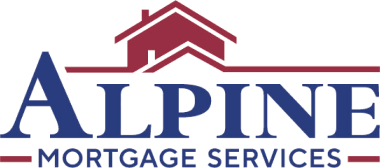Hard Money Loans - Hard Money Lender
Hard money loans have become an increasingly popular financing option for real estate investors and individuals looking for fast and flexible funding. Unlike traditional bank loans, hard money loans are secured by real estate and offered by private lenders, making them an attractive choice for those who may not qualify for conventional financing.
At Alpine Mortgage, we specialize in providing a variety of hard money residential loans, hard money commercial loans and hard money rehab loans. We lend to individual and corporate borrowers on all residential and commercial properties. We specialize in short term real estate secured loans, often called bridge loans and/or hard money loans.

What is a Hard Money Loan?
A hard money loans is a short-term, asset-based loan secured by real estate. Hard money loans are typically provided by private lenders or investor groups, rather than traditional banks or credit unions. These loans are known for their quick approval process and flexibility, making them a popular choice for real estate investors, flippers, and developers who need fast access to capital.
Key Features of Hard Money Loans
- Collateral-Based: The primary criteria for approval are the value of the property used as collateral, rather than the borrower's credit score or financial history.
- Short-Term: Hard money loans are usually short-term, ranging from six months to a few years, with terms often tailored to the specific needs of the borrower.
- Rates: Due to the higher risk for lenders, hard money loans typically come with higher interest rates compared to traditional loans.
- Flexible Property Types: These loans can be used for a variety of property types, including residential vacant land, tenant-occupied dwellings, and commercial properties. This versatility opens doors for investors to capitalize on diverse real estate opportunities that might not qualify for traditional financing.
How to Qualify for a Hard Money Loan
Qualifying for a hard money loan is generally easier than qualifying for a traditional loan, as the primary focus is on the value of the property used as collateral. However, there are still certain criteria that borrowers must meet to be approved:
- Property Value: The most crucial factor for hard money lenders is the value of the property used as collateral. Lenders will typically conduct a thorough appraisal to determine the property's current market value and ensure it meets their requirements.
- Equity: Borrowers need to have sufficient equity in the property to secure the loan. Most hard money lenders require a loan-to-value (LTV) ratio of 65% to 75%, meaning the loan amount cannot exceed 65% to 75% of the property's value.
- Down Payment: Depending on the LTV ratio and the lender's requirements, borrowers may need to provide a down payment to secure the loan. This can range from 20% to 35% of the property's value.
- Experience: Some hard money lenders prefer to work with experienced real estate investors or developers who have a track record of successful projects. While this is not always a requirement, it can improve the chances of approval and lead to better loan terms.
- Exit Strategy: Lenders want to ensure that borrowers have a clear plan for repaying the loan. This may include selling the property, refinancing with a traditional loan, or generating rental income.
The Hard Money Loan Application Process
The application process for a hard money loan is typically faster and more straightforward than that of a traditional loan. Here are the key steps involved:
- Find a Lender: The first step in securing a hard money loan is to submit an application to a lender like Alpine Mortgage. This application will typically include information about the borrower, the property, and the proposed investment strategy.
- Submit a Loan Application: Once you have identified a lender, you will need to submit a loan application, which typically includes information about the property, the loan amount, and your exit strategy.
- Property Appraisal: The lender will conduct an appraisal of the property to determine its current market value. This may involve a physical inspection, a review of comparable sales, and an analysis of the property's condition and potential.
- Loan Approval: Based on the property appraisal and your application, the lender will determine whether to approve the loan and what terms to offer. This process can take anywhere from a few days to a week or more.
- Loan Closing: If the loan is approved, you will need to sign a loan agreement and provide any required documentation, such as proof of insurance or title information. The lender will then disburse the funds, and the loan will be secured by a lien on the property.

Choosing the Right Hard Money Lender
When considering a hard money loan, it's essential to choose a reputable and experienced lender. At Alpine Mortgage, we pride ourselves on our expertise in the real estate investment market and our commitment to providing our clients with the support they need to succeed.
Here are a few factors to consider when choosing a hard money lender:
- Experience: Look for a lender with a proven track record of successfully funding real estate investment projects similar to yours.
- Reputation: Research the lender's reputation within the industry and read reviews from past clients to gauge their level of satisfaction.
- Loan terms: Compare loan terms, interest rates, and fees from multiple lenders to ensure you're getting a competitive deal.
- Customer service: Choose a lender that is responsive, communicative, and willing to work with you throughout the loan process.
Ideal Candidates for Hard Money Loans
Hard money loans are not suitable for everyone. They are particularly well-suited for:
- Real Estate Investors: Investors looking to purchase, renovate, and quickly flip a property can benefit from the speed and flexibility of hard money loans.
- Borrowers with Equity but Poor Credit: Individuals who have significant equity in an existing property but do not have a perfect credit score can still qualify for a hard money loan.
- Those Needing a Bridge Loan: Borrowers who require a bridge loan while awaiting the sale of their current home can use hard money loans to bridge the gap.
- Investors in Non-Traditional Properties: Properties that do not meet the criteria for traditional bank loans, such as distressed properties or those requiring significant renovations, can be financed through hard money loans.
Benefits of Hard Money Loans
- Speed: One of the most significant advantages of hard money loans is the speed at which they can be secured. While traditional bank loans can take weeks or even months to be approved, hard money loans can often be funded within a matter of days. This is particularly beneficial for investors who need to move quickly on a property purchase or renovation project.
- Less Stringent Requirements: Since hard money loans are based primarily on the value of the collateral, lenders are often more willing to work with borrowers who may have less-than-perfect credit or limited documentation. This can be especially helpful for self-employed individuals or those with complex financial situations.
- Flexibility: Hard money lenders, like Alpine Mortgage, are often more flexible than traditional banks when it comes to loan terms and repayment schedules. This flexibility allows borrowers to tailor their loan to their specific needs and investment strategy.
Drawbacks of Hard Money Loans
- Higher Interest Rates: Because hard money loans are considered higher risk than traditional bank loans, they often come with higher interest rates. Borrowers should carefully consider the cost of the loan and ensure that their investment strategy can accommodate the higher payments.
- Shorter Loan Terms: Hard money loans typically have shorter loan terms than traditional mortgages, often ranging from 6 to 24 months. This means that borrowers need to have a clear exit strategy in place, such as selling the property or refinancing with a longer-term loan.
- Higher Fees: In addition to higher interest rates, hard money loans may also come with higher origination fees, closing costs, and other associated fees.
- Risk of Foreclosure: Because hard money loans are secured by real estate, borrowers who default on their loans risk losing their property to foreclosure.
Hard money loans can be a powerful tool for real estate investors and developers seeking fast, flexible funding for their projects. With their asset-based approval process and short-term nature, they provide a valuable alternative to traditional loans, particularly for those who need quick access to capital or have less-than-perfect credit. By understanding the benefits, risks, and process involved in securing a hard money loan, investors can make informed decisions and maximize their chances of success.
At Alpine Mortgage, we're committed to providing our clients with the knowledge, support, and resources they need to achieve their real estate investment goals. Alpine Mortgage provides hard money loans in the following states: California, Colorado, Connecticut, Florida, Georgia, New Jersey, New York, Ohio, Pennsylvania and Texas. Contact us today to learn more about how we can help you secure the funding you need for your next project.
Call us now at (800) 876-LOAN to speak to one of our hard money loan specialists or click here to have one of our hard money loan specialists give you a call today.
If you are interested in applying for a hard money loan, you can apply online now.
Hard Money Loan FAQs
We have a variety of different hard money loan programs with different mortgage rates. Contact us for a personalized hard money rate quote.
Yes, since hard money loans are based primarily on the value of the collateral, lenders are often more willing to work with borrowers who may have bad credit. Our hard money loans allows credit scores as low as 500.
The approval process for hard money loans is typically much faster than traditional loans, with many loans being approved and funded within a few days to a week.
Hard Money Loan Resources
Get a Quick Quote
"*" indicates required fields
